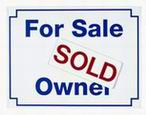
While I was selling my house, a real estate agent friend gave me some very wise advice. He said, “In the current market, having someone want to buy your house is an amazing thing. Don’t underestimate it.”
He’s right. It really is a buyer’s market, so sellers will have to be flexible.
When selling your house yourself, negotiating over price is as simple as sitting down and having a conversation. The buyer tells you the price they want to pay, and you counter with your preferred price.
Don’t be at all surprised if a potential buyer offers A LOT less than your asking price. The expectation out there is that the asking price is only a starting point. This is why it is so important that you’ve decided beforehand on the lowest price you will accept, and that you have a current valuation so that you can, if necessary, prove to the buyer that your price is reasonable.
So what to do if you have an extremely low offer? It’s up to each individual seller to balance their reasons for selling against the money they might possibly gain if they held out for a buyer prepared to offer more. By holding out for another buyer you might gain tens of thousands, but by letting a firm buyer go, you risk not selling the house at all. Your decision will depend on your individual situation.
Personally, when faced with a low offer, I decided that I would accept it, because it was the amount I would have got if I’d sold the house for the asking price using an agent, and had to pay the commission. When I factored that in I felt a lot better, and happily sold the house.
But it’s not just price that you need to negotiate, it’s also the conditions of sale. A great price can be downgraded by difficult conditions, and likewise, a low number can be made much more attractive by easy conditions or an unconditional buyer (the best kind!).
If there is a condition that puts real pressure on you – for example, the buyer wants the keys in two weeks – you could then renegotiate the price to take into account the fact that you’ll need to find somewhere to live quickly. If they won’t budge on price, you can renegotiate a larger deposit. Then, if the sale falls through and you’ve uprooted your life to get out of the house in two weeks, at least you’ve got the deposit as a consolation. It goes without saying that you should always try to get the largest deposit possible.
When you have reached a number you’re happy with, the buyer should enter their price and conditions on the Sale and Purchase agreement. Never sign this on the spot in front of the buyer. Conditions need to be properly worded and should always be checked with your lawyer. Fax the sale and purchase agreement to your lawyer as soon as you can, and once when they have given you the go ahead, sign it.









Join the Discussion
Type out your comment here:
You must be logged in to post a comment.